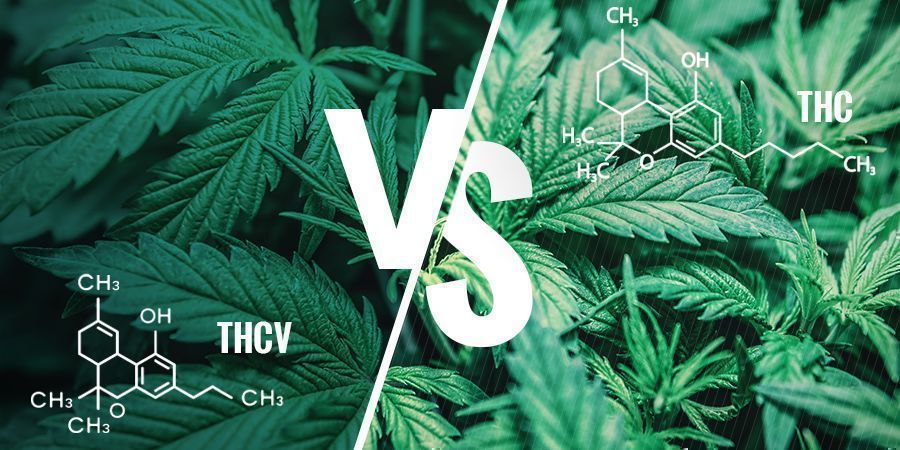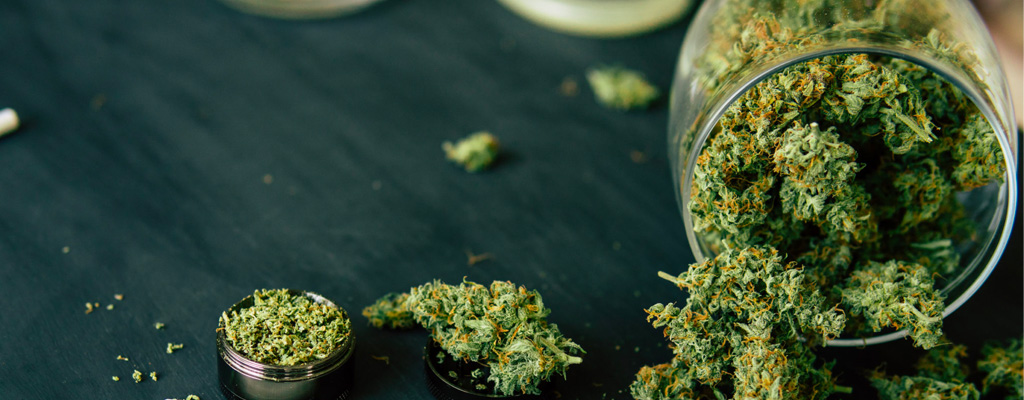The cannabis plant has more than 100 different types of cannabinoids, with most of them having different properties. An example is a tetrahydrocannabivarin, which is commonly known as THC-V. Although THC-V is one of the lesser-known cannabinoids, it has some potential benefits that cannabis enthusiasts can enjoy.
While in-depth research has been carried out on THC and CBD, scientists are just beginning to examine the potential benefits of THC-V. Since THC-V is gaining popularity, how is it different from THC? In this article, we will be looking at the key differences between these two compounds.
What is THC?
Tetracannabinol (THC) is the most popular compound derived from the cannabis plant. It has several recreational and medicinal benefits. THC helps manage symptoms for patients suffering from chronic pain. It can also be used by those with eating difficulties like cancer or gastroenterological disorders.
What is THC-V?
Tetrahydrocannabivarin (THC-V) is a cannabinoid with a chemical structure similar to THC. This compound was first discovered in 1973. However, very little research has been carried out because of the complexity and cost of its isolation process. Due to a lack of research, the initial perception was that THC-V was non-intoxicating. But further research has shown that it is an intoxicating compound that can get you high. THC-V but it has several therapeutic benefits.
Are THC-V and THC the same?
The chemical structures of THC-V and THC are almost identical. However, THC has an extra hydrocarbon chain. This minor difference in chemical structure results in significant differences in how the body metabolizes and utilizes them. Both cannabinoids are also derived from different parent molecules.
THC is derived from cannabigerol acid (CBGA), along with popular cannabinoids like cannabidiol (CBD) and cannabichromene (CBC). In contrast, THC-V and its acidic form, tetrahydrocannabivarin acid (THCVA), are obtained from cannabigerovarinic acid (CBGVA).
How Does THC Work?
When consumed, THC binds to the CB1 and CB2 receptors in the endocannabinoid system, thereby causing a physiological response. The cannabinoid binds to these receptors because it is chemically similar to two of the endocannabinoid neurotransmitters naturally produced in the brain, which are 2-AG and anandamide.
CB1 receptors are primarily found in the brain, spinal cord, and stomach. The CB1 receptors are responsible for the high production of THC. On the other hand, CB2 receptors are more commonly found in the peripheral nervous system and the immune system.
How Does THC-V Work?
Although THC and THC-V have similar chemical structures, they interact differently with the endocannabinoid system. When THC-V binds with the CB1 receptors, it blocks the response of these receptors. The way it interacts with the CB2 receptors depends on the dosage.
When consumed in low doses, THC-V blocks the response of the CB2 receptors; however, at large doses, it triggers a reaction. This is why you feel high when THC-V is taken in large quantities.
Since not much research has been carried out on THC-V yet, the mechanisms behind its effects are largely unknown. However, scientists have found that it could stop many of the side effects of THC, such as paranoia and short-term memory loss, when taken together.
Will THC Get You High?
Yes, THC will get you high. While other cannabinoids also cause highs, THC is in large quantities in the cannabis plant.
Will THC-V Get You High?
THC-V only gets you high when taken in large doses. This is one of its advantages since you can get all the therapeutic benefits without getting high. Before you can get high, you will have to take a dose equivalent to four times the average THC dose. For most people, this is usually around 20–40 mg.
Effects of THC
The effects of THC on individuals depending on their tolerance levels. Other factors that influence how you feel include how you consume it, the strain or composition of the THC product, and your body’s physiology.
Some of the most common effects of THC-V are enhanced mood, body relaxation, improved appetite (munchies), euphoria, creativity, sleepiness, and a general psychoactive high.
The therapeutic benefits of THC include:
- Decreased nausea.
- Reduced insomnia.
- Relief from chronic pain.
- Management of psychiatric disorders such as anxiety, mood disorders, obsessive-compulsive disorder (OCD), and PTSD.
- Improved appetite for cancer patients on chemotherapy.
Side Effects of THC
The side effects of THC are caused by low tolerance levels, large doses, mixing with alcohol, etc. These usually cause negative effects, such as:
- Increased heart rate
- High blood pressure
- Panic attacks
- Paranoia
- Anxiety
- Nausea
- Vomiting
Effects of THC-V
The high obtained from THC-V is entirely different from that obtained from THC. THC-V is known for its energy-boosting properties, which is why it is recommended during the day.
Until more research is carried out on THC-V, most of its effects will remain unknown. It is referred to as “diet weed” because of its ability to reduce appetite and curb hunger.
Some of the therapeutic benefits of THC-V include:
- Anti-inflammatory effects.
- Suppressing appetite for diabetes patients.
- Treating symptoms of Alzheimer’s and Parkinson’s diseases.
- Managing anxiety and obsessive-compulsive behaviors.
- Managing seizures, tremors, and epilepsy.
Side Effects of THC-V
Another benefit of THC-V is that it does not cause many of the side effects associated with THC, such as intoxication, munchies, drowsiness, and sleepiness. Available research has shown that THC-V is safe and non-toxic.
Large doses of THC-V have been given to animal models without any reports of toxicity. Further studies were carried out on humans, with a maximum dose of 10 mg daily for 13 weeks. Participants did not report any side effects aside from tiredness.
However, it is advisable not to consume THC-V if you have an eating disorder or are already treating appetite loss.
Is THC-V Legal?
The current legality of THC-V is quite complicated. This is because, while THC-V has a similar chemical structure to THC, it is not a federally illegal substance in the United States. Instead, it falls into a gray area.
THC-V is not included under “cannabimimetic agents,” which are explicitly prohibited under the Controlled Substances Act. Technically, it also does not fall under the definition of “tetrahydrocannabinol,” which is also illegal under that act. Although the act makes cannabis and cannabis extract illegal, THC-V could remain legal since it can be derived from legal hemp based on the 2018 Farm Bill.
Conclusion
Initial research into THC-V suggests several therapeutic benefits available to cannabis enthusiasts. Although it is psychoactive, it is not as potent as THC, so users can choose whether they want to get high by simply adjusting the dose. Another benefit of THC-V is that it is legal even in states where THC is illegal.



